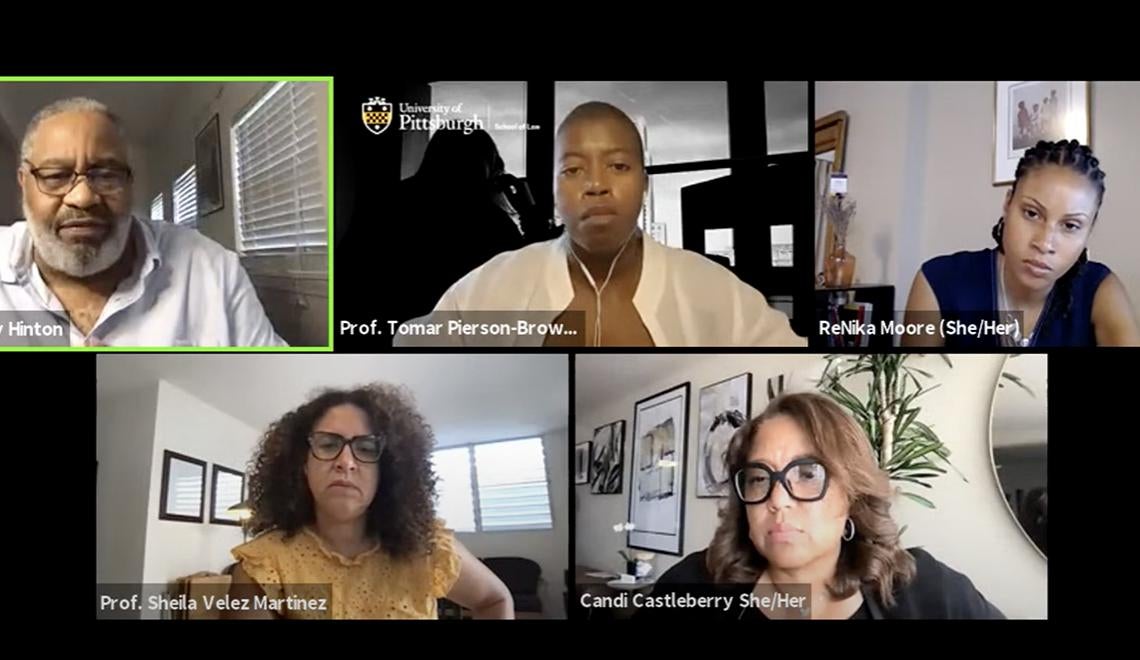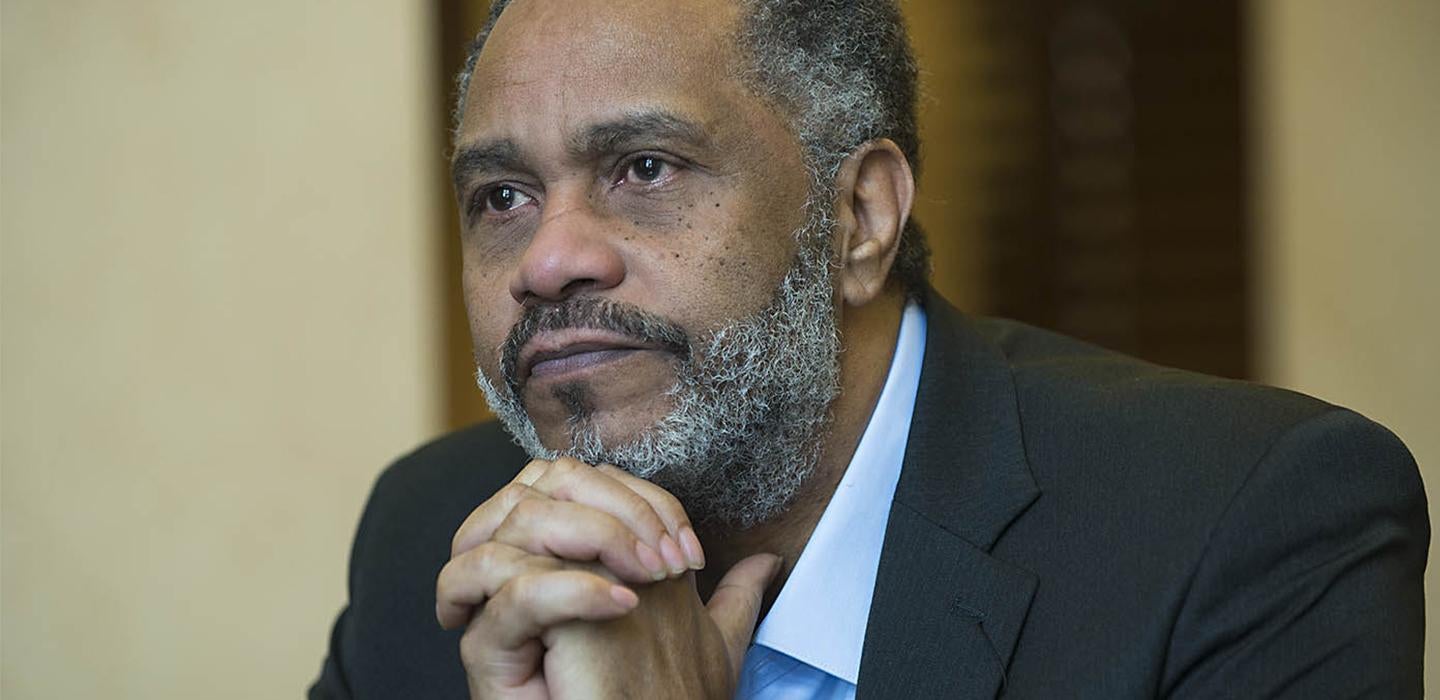
Subscribe to Pittwire Today
Get the most interesting and important stories from the University of Pittsburgh.“Where is my justice?” Anthony Ray Hinton asked.
“I ask someone please tell me tonight where I do find justice for spending 30 years in solitary confinement?” Hinton continued, wiping his face and eyes.
Hinton’s story defined the panel discussion on Structures of Inequity: A Conversation on Tuesday, July 27, as part of the Diversity Forum 2021: Dismantling Oppressive Systems Building Just Communities, held from July 27-29. More than 700 people registered for the panel discussion with Hinton and more than 5,000 registered to participate in the Diversity Forum 2021.
Hinton spent 30 years on death row in Alabama before being exonerated and freed with the help of the Equal Justice Initiative and attorney Bryan Stevenson, who spent more than a decade working on Hinton’s behalf. The Equal Justice Initiative, a nonprofit dedicated to ending mass incarceration, provides legal representation to those who have been illegally convicted, unfairly sentenced or abused in state jails and prisons. In 2018, Hinton published “The Sun Does Shine: How I Found Life and Freedom on Death Row.”

Other panelists included ReNika Moore, who directs the ACLU’s racial justice program; Sheila Vélez Martínez, the Jack & Lovell Olender Professor of Refugee, Asylum, and Immigration Law in Pitt’s School of Law; Tomar Pierson-Brown, associate dean for equity and inclusive excellence at Pitt Law; and Candi Castleberry, founder of the Dignity & Respect Campaign.
Though the evening’s discussion centered on dismantling systemic oppression, the impact of injustice on individuals including Hinton prompted strong reactions from panelists and the audience.
One participant asked Hinton if he ever got an apology.
“No, I haven’t gotten an apology. They won’t say they are sorry,” he answered. But, Hinton later added that he had “forgiven everybody in the state in Alabama” for being wrongfully imprisoned for a crime he didn’t commit.
The idea that justice can be elusive for marginalized groups in America and the need for grace were recurring themes of the evening.
“Mr. Hinton, I give you the space and the grace to enjoy the rest of your life,” said Castleberry, adding, “Your story has affected to me the point where I almost speechless.”
Castleberry has spent her career working with diversity and inclusion initiatives in corporate America including for major employers such as Sun Microsystems, Motorola, Xerox and UPMC. She spoke of the importance of Hinton’s story and noted that there are many stories of injustice in corporate America that don’t make it into the public eye.
“The solution must include integrated systems that enable us to report things that are not fair and equitable without fear of retribution and consequence,” Castleberry said.
Martínez, director of clinical programs and the Immigration Law Clinic at Pitt and co-director of the Civil Rights and Racial Justice Center, also reacted to Hinton’s message.
“Mr. Hinton, I thank you for your graciousness and your soul,” Martínez said.
Martínez spoke about the need for systemic change in the legal profession, including in education.
“Law schools need to do more. We need to think about a different legal profession. We need anti-subordination and critical justice as part of the curriculum,” she said. An anti-subordination approach focuses on identifying and evaluating practices that perpetuate the oppression of historically disadvantaged groups.
Martínez also discussed the need to combine “the insights of critical theory with the toolkit that organizers already have to disrupt and dismantle systems of inequality.”
In concluding the panel discussion, Clyde Pickett, vice chancellor for equity, diversity and inclusion at Pitt, addressed Hinton personally with an acknowledgment that Hinton has yet to receive from the state of Alabama.
“Mr. Hinton, I offer you a personal apology where others did not.”
All workshops will be available for viewing after the forum on the Canvas course page for the Diversity Forum 2021.
— Elizabeth Raffaele


